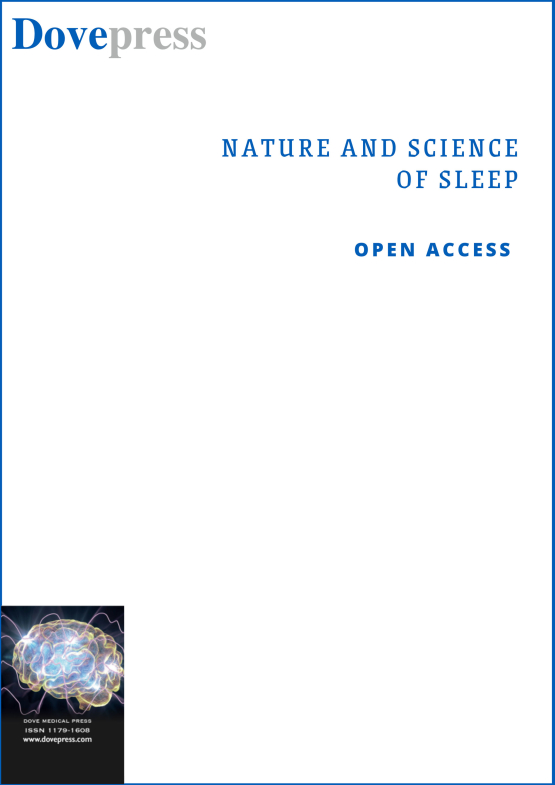Submit a Manuscript to the Journal
Nature and Science of Sleep
For an Article Collection on
The Role of Sleep in Selectively Consolidating Memories Based on Their Perceived Future Relevance During Encoding
Manuscript deadline
15 May 2024


Article collection guest advisor(s)
Dr. Per Davidson,
Kristianstad University
[email protected]
The Role of Sleep in Selectively Consolidating Memories Based on Their Perceived Future Relevance During Encoding
Many studies have found that sleep has a beneficial effect on memory consolidation compared to wake. Beyond that, many have claimed that during sleep, memories with perceived high future relevance are preferentially consolidated. Recently, however, systematic reviews and meta-analyses have found that this selective consolidation effect of sleep is not as large as has been claimed, and might not even exist at all.
It has also been suggested that different forms of memories are consolidated during different stages of sleep. However, this idea has also suffered from poor replicability of findings.
The proposed role of sleep in selectively consolidating memories is important for basic research on the neurobiological function of sleep, and on the mechanisms through which sleep consolidates memories. For example, is memory consolidation during sleep based on passive protection or active processing? It could also have important implications for learning and memory, as it might allow us to predict how an event will be remembered based on whether it was followed by sleep or wake.
Knowing which sleep stages consolidate which types of memory could also be important as technology used to manipulate sleep advances. If such patterns exist, mapping out which sleep stage consolidates which kinds of memories could allow us to select which memories are remembered and which are forgotten.
This Article Collection will examine whether sleep (compared to wake) preferentially consolidates memories based on their perceived future relevance. “Future relevance” could be either intrinsic to the stimuli (e.g., using stimuli with varying degrees of emotional tone) or based on instructions during encoding or retrieval (e.g. by manipulating test expectations; telling participants they will be rewarded for good memory performance; or combining sleep with various memory paradigms that induce forgetting such as directed forgetting, retrieval-induced forgetting, or suppression-induced forgetting).
We are also interested in studies examining whether particular sleep stages preferentially consolidate different kinds of memories based on their perceived future relevance, including studies that have examined this by manipulating sleep in various ways.
Priority will be given to high-powered and pre-registered studies. We warmly welcome null findings, as we believe that the selective publication of significant findings creates exaggerated effect sizes in the literature and limits replicability.
We are particularly interested in original research articles, but will also consider reviews, expert opinions, and commentaries that make a significant contribution to the field.
All manuscripts submitted to this Article Collection will undergo full peer-review; Guest Advisors will not be handling submitted articles. Please review the journal’s aims and scope and author submission instructions prior to submission.
Please submit your manuscript through the Dovepress website. During submission, enter the promo code BDQEV to indicate that your article should be considered for this Collection.
The manuscript submission deadline is 15 May 2024.
If you have any questions about this Article Collection, please contact Krista Thom at [email protected].
Guest Advisor:
Dr. Per Davidson completed his doctoral thesis in psychology on the effect of sleep on emotional university at Lund University in 2017. After that, he spent four years as a postdoctoral researcher studying similar topics at the Sleep and Anxiety Disorders Laboratory at Harvard Medical School and the Massachusetts General Hospital. He is currently a senior lecturer in psychology at Kristianstad University, Sweden. One of his major research interests has been using systematic reviews and meta-analyses to argue that the field suffers from poor replicability of findings and figure out why that might be.
Disclosure Statement: Dr. Davidson declares no conflict of interest.
Benefits of publishing open access within Taylor & Francis
Global marketing and publicity, ensuring your research reaches the people you want it to.
Article Collections bring together the latest research on hot topics from influential researchers across the globe.
Rigorous peer review for every open access article.
Rapid online publication allowing you to share your work quickly.
Looking to Publish your Research?
Find out how to publish your research open access with Taylor & Francis Group.
Choose open accessSubmission Instructions
All manuscripts submitted to this Article Collection will undergo desk assessment and peer-review as part of our standard editorial process. Guest Advisors for this collection will not be involved in peer-reviewing manuscripts unless they are an existing member of the Editorial Board. Please review the journal Aims and Scope and author submission instructions prior to submitting a manuscript.